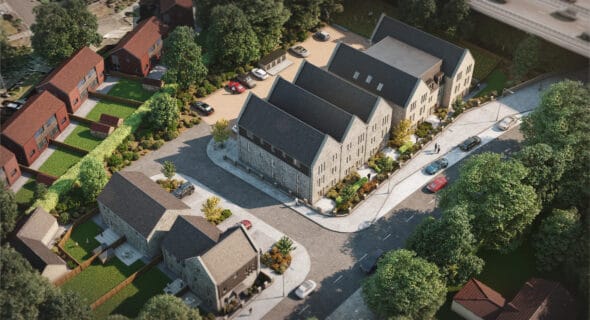 17/03/2017
17/03/2017
TC Consult recently hosted its latest Practical Insights Roundtable session facilitating delegate discussions to overcome common challenges in understanding and meeting best practice following changes to regulations in fire sprinkler systems.
The regulations, which saw the introduction of sprinkler systems being phased in for some buildings from April 2014 before becoming mandatory for all new and converted houses and flats from January 2016, attracted a torrent of criticism from Conservative Ministers in Westminster.
The Welsh Minister for Housing and Regeneration at the time, gave his backing to the systems citing the introduction would “set Wales apart” from the rest of the world in how it promotes fire safety. While UK Government opposition warned the introduction could mean less housebuilding, fewer first-time buyers and more expensive rents and mortgages in Wales.
While the topic may still conjure controversial debate, what we do know is that the regulations are now in force and are here to stay. While it’s been over a year since the regulations were put into effect by the Welsh Government there are still questions to be asked around the best ways for changes to be adopted when building new and converted homes in Wales. And with the recent tragic event at Grenfell Tower, the importance of fire safety issues in the design and maintenance of new build and refurbishment projects are magnified exponentially.
Our expert for the session was Senior Surveyor Mark Tambini from Bureau Veritas Building Control (formerly HCD Building Control). Bureau Veritas are global leaders in Testing, Inspection and Certification (TIC) services and also provide Approved Inspector services through their Building Control department.
Joined by delegates from Principality Building Society, C2J Architects, Portabella, CW Architects, Uzmaston Projects and hosted at the RICS Wales offices in Cardiff, the event helped form an informative open discussion with all attendees sharing experiences, project examples alongside advice and knowledge from Bureau Veritas and TC Consult.
At the event Mark summarised key considerations on how best to comply with the new regulation:
“The Domestic Fire Safety (Wales) measure was introduced in 2011 by the National Assembly for Wales, with its main aim to prevent avoidable death and injury arising from house fires. As part of this, the automatic fire suppression requirement is now mandatory in Wales and is a positive step regarding life safety. The benefits are primarily regarding enhanced life safety however this can go hand in hand with reduced property damage. Whilst there are of course additional costs, any enhanced life safety is surely a step in the right direction.
“In terms of exclusions where the new regulations don’t apply, the measure is not applicable to existing building stock, unless through change of use or adding additional dwellings.
Mark continued: “When considering whether to install a tank system or to run the sprinklers from water mains, this depends entirely on the water supply available. Direct connection to the main is possible subject to adequate flow and pressures being available, if flow / pressure is not suitable then you will need to consider tank and booster pump options.
“An additional benefit of the new requirements could include potential to relax traditional design constraints as a result of automatic suppression. We are providing clients with a proactive Approved Inspector service in assessing design proposals to help ensure compliance is achieved at all times.”
Delegate attendee, Darren Worthing, Director or CW Architects offered further advice to those unsure of how best to interpret what needs to be done differently on projects going forwards: “With the exclusion of certain listed buildings, every new dwelling house, flat or holiday let created in Wales now requires the installation of an automatic fire suppression system.
“These systems are relatively simple to install, commission and maintain. A consequential relaxation in certain historic design constraints allow architects, through intelligent design, to create more desirable open plan layouts with a reduced need for protected hallways, fire doors etc. The savings achieved here, together with the added value of the completed property, typically more than offsets the initial cost of the sprinkler installation”.
Commenting on the success of the event, Director of TC Consult, Paul Tambini said: “This is a very important topic which all professional team members involved with development projects need to know about and be able to advise their clients accordingly.
“Cost is often raised at an early stage and as this market is developing, more and more products and systems are becoming available. Typical costs per dwelling for a domestic sprinkler system range from £1,500 – £3,000 depending on type of system, number of overall dwellings and other factors.”
If you have any queries specifically on this topic in relation to compliance and design please direct them to mark.tambini@uk.bureauveritas.com.
For cost advice queries please direct them to paul@tc-consult.co.uk.
Follow @TC_Consult on Twitter to keep updated on upcoming Practical Insights Seminars and if you have a topic you would like covered, please let us know.




